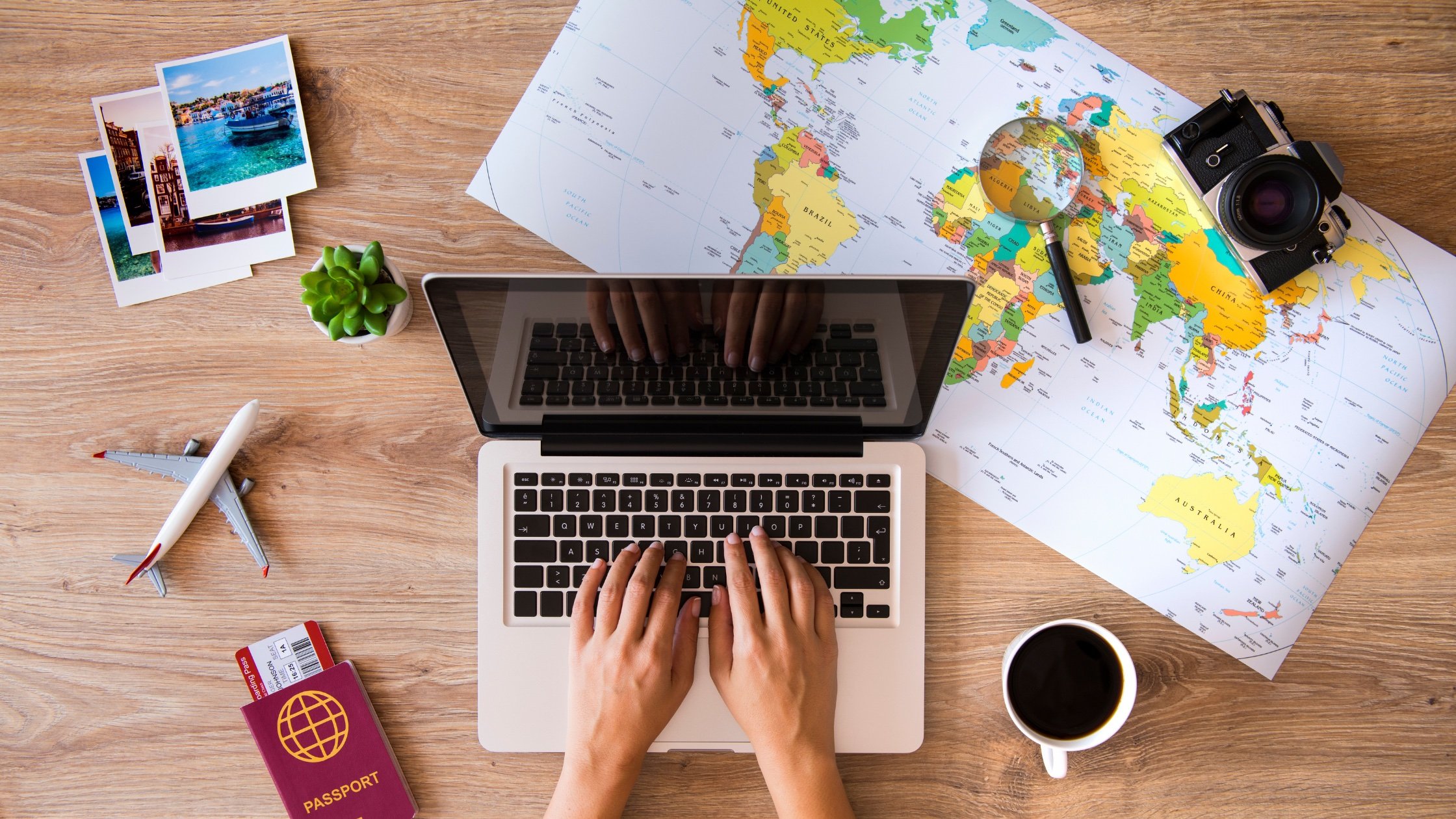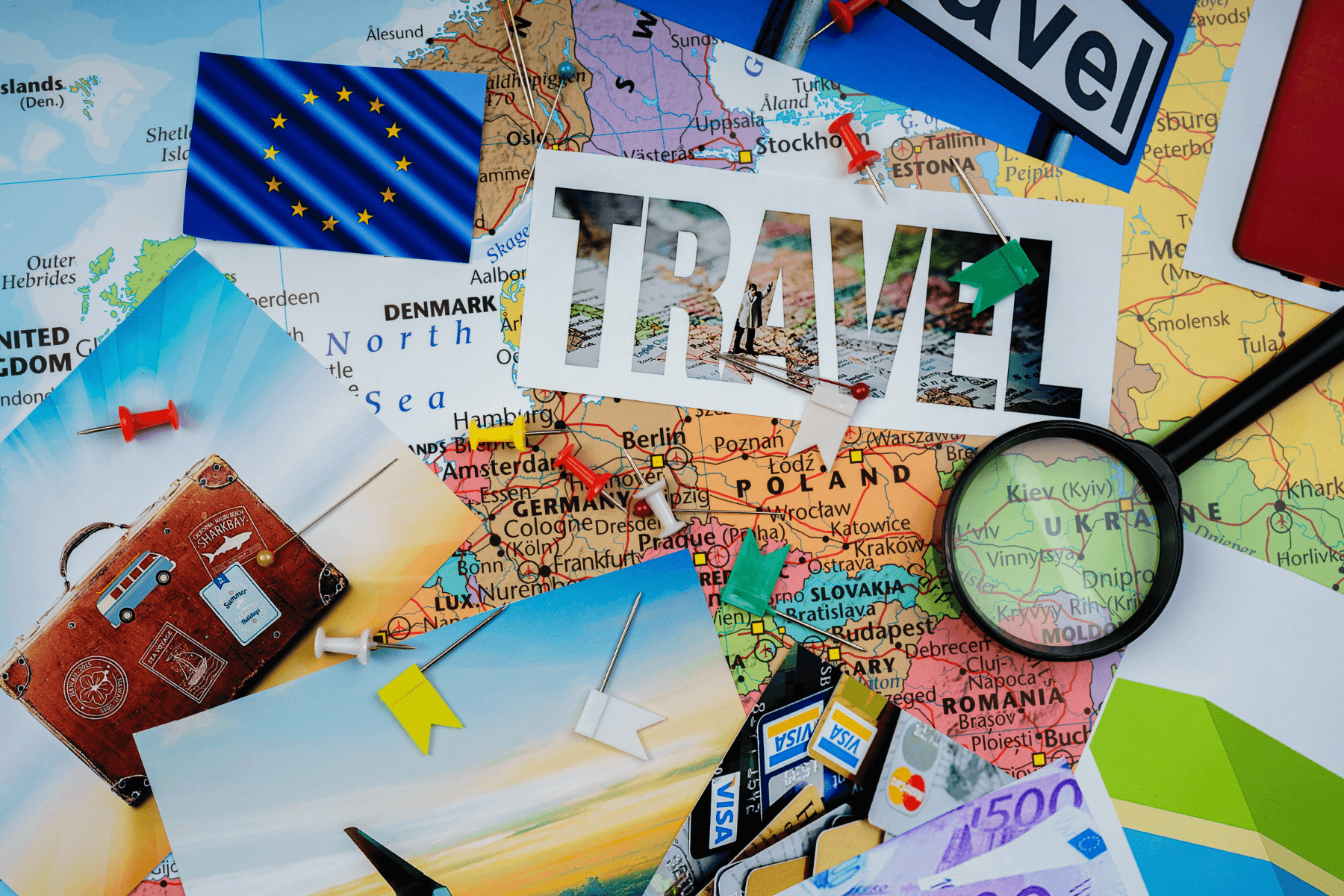The Ultimate Guide to Travel Planning: How to Plan Your Perfect Trip
Whether you’re heading out on a short weekend getaway or embarking on an epic vacation, travel planning is essential to ensure you make the most of your time, money, and energy. A well-thought-out plan can make your trip smoother, more enjoyable, and stress-free. In this guide, we’ll walk you through the best practices for planning your next adventure.

Why is Travel Planning Important?
Good travel planning isn’t just about booking flights and hotels; it’s about making sure your trip is smooth, enjoyable, and memorable. A well-organized plan can:
- Save you time by helping you make decisions ahead of time.
- Avoid costly mistakes like booking flights too late or missing out on essential experiences.
- Ensure you don’t forget important details, such as packing items or crucial documents.
With a bit of preparation, you’ll have the confidence to enjoy your travels without worrying about logistics.
Steps for Effective Travel Planning
Creating an effective travel plan requires breaking down the process into manageable steps. Here’s a simple guide to follow:
1. Set Your Travel Goals
Before you jump into booking flights or accommodations, take a moment to think about your travel goals. What kind of experience are you looking for? Do you want a relaxing beach holiday, an adventurous hiking trip, or a cultural exploration? Defining your purpose helps guide your decisions during the planning process.
- Adventure Trip: Research destinations that offer activities like hiking, zip-lining, or kayaking.
- Cultural Tour: Consider locations rich in history, museums, and local traditions.
- Relaxation: Look for peaceful retreats or beach resorts.
By setting clear travel goals, you’ll have a solid foundation for your travel planning process.
2. Choose the Right Destination
Selecting the right destination is a key component of any trip. Factors like budget, climate, and activities should all influence your decision. Here are some considerations:
- Budget: Determine how much you’re willing to spend and look for destinations within your range.
- Weather: Check the best seasons to visit your chosen destination to avoid extreme weather.
- Travel Restrictions: With international travel, it’s important to research visa requirements and other restrictions related to COVID-19 or political situations.
Check out travel blogs like Y Travel Blog for destination inspiration and tips.

3. Create a Travel Budget
One of the most crucial parts of travel planning is budgeting. A clear budget helps you manage your finances during the trip and ensures you don’t overspend. Be sure to account for:
- Flights and transportation costs
- Accommodation (hotels, Airbnb, etc.)
- Food and dining expenses
- Activities (tours, excursions, tickets)
- Travel insurance (always recommended for international trips)
Consider using budgeting tools like Mint to track your expenses.
4. Book Flights and Accommodation Early
Booking flights and accommodations early can save you a significant amount of money. For flights, use search engines like Google Flights or Skyscanner to compare prices. Keep an eye out for discounts, special promotions, or flexible travel dates to reduce costs.
When booking accommodations, think about the following:
- Location: Choose somewhere central if you want easy access to local attractions.
- Amenities: Consider what’s important to you—Wi-Fi, breakfast, a pool, etc.
- Cancellation Policies: Choose flexible options in case your plans change.
For more tips on booking accommodation, you can check out this detailed guide on Booking.com.
5. Plan Your Itinerary
Once the basics like flights and hotels are sorted, it’s time to create an itinerary. A good travel planner will help you allocate time for sightseeing, rest, and exploration. Be realistic about how much you can fit in each day to avoid feeling rushed.
- Must-See Attractions: Identify the top sights and experiences in your destination.
- Local Cuisine: Don’t miss out on tasting the local food—research the best restaurants or street food vendors.
- Leisure Time: Leave some free time for spontaneous activities or relaxation.
Many travel apps, such as TripIt, can automatically generate itineraries by pulling in your travel details from email confirmations.
6. Pack Smart
Packing can be one of the most stressful parts of travel planning, but a bit of organization goes a long way. Start by making a checklist of everything you’ll need based on your destination and activities.
- Essential documents: Passport, tickets, insurance, and emergency contacts.
- Clothing: Think about the weather and cultural norms.
- Health items: Medications, sunscreen, and travel-friendly toiletries.
- Gadgets: Phone, charger, camera, and power bank.
Don’t forget to check out our packing tips in the Travel Gear section.

7. Prepare for the Unexpected
Even with the best travel planning, things don’t always go as planned. It’s important to be prepared for potential hiccups. Some strategies include:
- Travel Insurance: This can cover unexpected cancellations, lost luggage, or medical emergencies.
- Backup Plans: Have a backup plan in case an activity gets canceled or an attraction is too crowded.
- Emergency Contacts: Save local emergency numbers and embassies in your phone.
Top Tips for a Successful Travel Planning Experience
1. Don’t Over-Pack Your Schedule
It’s tempting to fill your itinerary with as many activities as possible, but it’s important to leave time for rest. Over-planning can lead to exhaustion, leaving you with no time to simply enjoy your destination.
2. Consider Sustainable Travel Options
As more travelers become aware of environmental impact, sustainable travel choices are gaining popularity. Look for eco-friendly hotels, use public transportation, and avoid single-use plastics during your trip.
3. Download Helpful Apps
Use helpful apps like Google Maps for navigation, XE Currency for real-time exchange rates, and Yelp for restaurant reviews. These apps will make your trip more enjoyable and seamless.
Frequently Asked Questions (FAQs)
1. How far in advance should I start travel planning?
Ideally, start planning at least three to six months in advance. This gives you enough time to find the best deals on flights and accommodations and ensures you don’t miss out on popular activities.
2. Can I plan a trip without spending too much?
Yes! Travel planning on a budget is entirely possible. Focus on affordable destinations, book flights early, and look for budget accommodations like hostels or Airbnb.
3. Do I need a travel planner if I’m going on a short trip?
Even for short trips, a travel planner is helpful to keep things organized and ensure you make the most of your limited time.
4. What should I do if my travel plans change?
Always have a backup plan and keep your accommodation and flight bookings flexible. With travel planning, flexibility can help you adapt to unexpected changes.
Conclusion: Enjoy Stress-Free Travel with Proper Planning
Effective travel planning ensures that your trip is enjoyable and well-organized, leaving you free to focus on making lasting memories. By following these steps, you can create a travel experience that is both smooth and fulfilling.
Remember, whether you’re planning a trip for relaxation, adventure, or cultural exploration, proper travel planning can transform your journey into a hassle-free and enriching experience. Happy travels!
